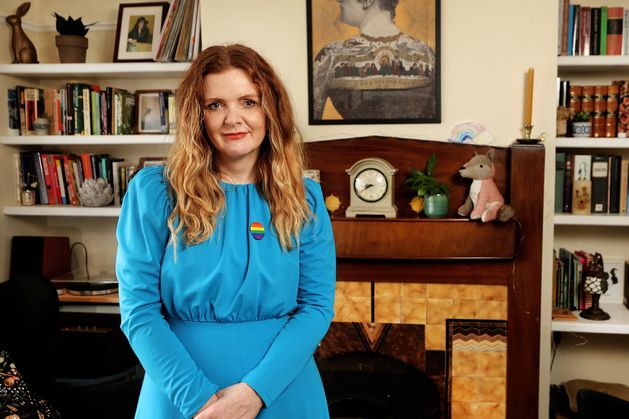‘Outrage and shock’ among psychotherapists as minimum requirements are to be lowered
The Sunday Independent has learned that two of the main accreditation bodies for psychotherapists have written to Coru — the regulator for health and social care professionals — to outline their concerns about new minimum training standards due to be introduced later this year.
Jacky Grainger, chairperson of the Irish Association of Humanistic and Integrative Psychotherapy (IAHIP), said there is “outrage and shock” among psychotherapists at what they feel is the watering down of the training requirements for the profession.
Coru recently published new training standards for psychotherapists that will be brought into law after years of the sector calling for government regulation.
The HSE and many private healthcare groups only hire psychotherapists that have met minimum training standards set by the Irish Council for Psychotherapy (ICP) and the IAHIP, but both these bodies fear that the new regulations will water down existing standards.
A letter sent by ICP chief executive Rúaidhri O’Connor to Coru last month said it had “deep public safety concerns” about the Coru standards.
Clinical hours lie at the core of a psychotherapist’s or counsellor’s preparation
He said the ICP was concerned that patients will experience disappointment “or even traumatisation” with psychotherapists who are not adequately trained under the standards.
Ms Grainger said the new standards will create an “unacceptable risk for the public” and are below accepted European benchmarks.
“The new Coru standards reduce the clinical experience requirement to 200 hours — hundreds of hours short of the European minimum, and significantly below the 500 hours outlined in Coru’s own 2023 draft criteria,” she added.
“Clinical hours lie at the core of a psychotherapist’s or counsellor’s preparation. A reduction on this scale is not just a dilution of training — it poses a risk to client welfare.”
Ms Grainger said she was shocked that Coru will not require trainee psychotherapists to engage in personal therapy as part of their training.
She said such experience is fundamental, as it allows trainees to “explore their own inner world, understand conscious and unconscious dynamics, and develop the reflective capacity necessary for safely meeting vulnerable people”.
She added: “A person who has never engaged in personal therapy is fundamentally unprepared to support others in deep psychological work. This disconnect compromises both public safety and the quality of the profession.”
Ms Grainger is also critical of the absence of a minimum length of training.
She said the new Coru model will potentially allow courses as short as one year, with trainees working with clients in the first year. She said this created an “unacceptable risk” for people using psychotherapy services.
“Coru’s position is that graduates will still be required to demonstrate key competencies through its Standards of Proficiency to enter the register,” said Ms Grainger.
“However if the training criteria themselves are insufficient, those proficiencies are impossible to achieve.”
She said that when people seeking therapy are met by a practitioner who is not adequately equipped, there is a real risk of “re-traumatisation” — especially for those “carrying deep wounds”.
“People coming to counselling or psychotherapy are very often in fragile and exposed states, and are placing deep trust in the profession,” she added.
“Lowering standards now, after decades of careful work to build strong professional frameworks, puts that safety at great risk.
“In a country that increasingly presents itself as progressive and modern in its approach to mental health, this marks a clear step in the wrong direction.”
She said the regulation did not protect people but instead “endangers” them.
She is hopeful that Coru will engage with the professional bodies before bringing in the regulations.
A Coru spokesman said: “While these threshold standards set the knowledge and skills requirements for entry into practice, every registered professional, when the registers open, must also follow a code of professional conduct and ethics.
The standards Coru has set follow an extensive public consultation
“This ensures that psychotherapists work within their scope of competence. If a psychotherapist takes on work beyond their skills or training, they can be held accountable through a fitness to practise process.
“At present in Ireland, there is no legal provision to prevent this kind of unsafe practice; the introduction of statutory regulation will change that.
“The standards that the Counsellors and Psychotherapists Registration Board has set follow an extensive public consultation, which received almost 700 submissions from stakeholders representing a diverse range of perspectives and opinions.
“The registration board has reviewed all submissions received from professional membership bodies, as well as from practitioners and those responsible for educating and training future practitioners.
“In considering this feedback in its entirety, together with consideration of international practice in a range of jurisdictions, the board is satisfied that its standards and criteria are sufficient to prepare graduates to reach the level of readiness to practice safely and professionally.”
Regarding the absence of a requirement for psychotherapists to undertake personal therapy, the spokesman said its necessity was “an opinion” that was “not universally shared” across the profession.
“Standards have been set for skills such as reflecting on therapeutic boundaries, managing dynamics in the therapeutic process, and handling personal emotional responses,” he said.
“It is not Coru’s role to dictate how these are taught or assessed.”

